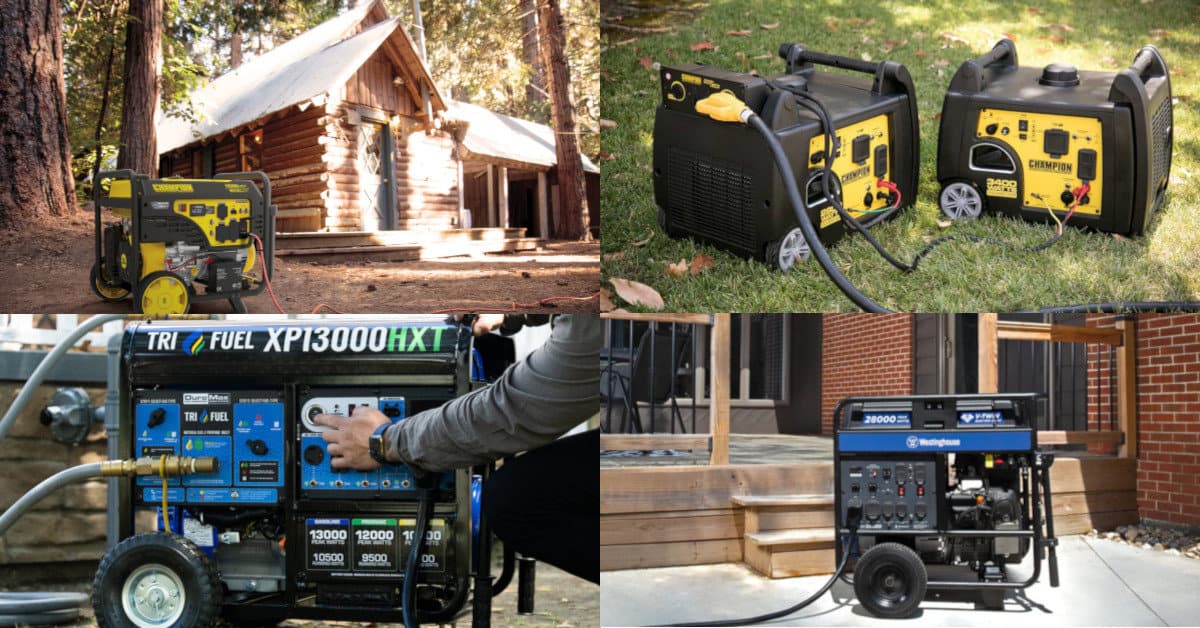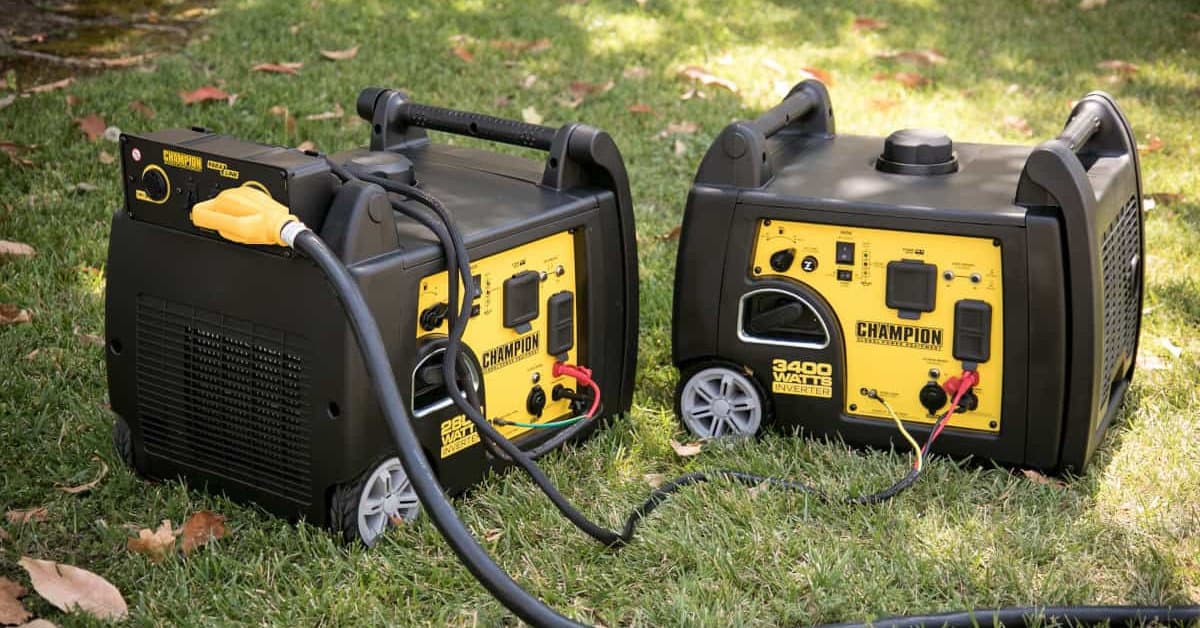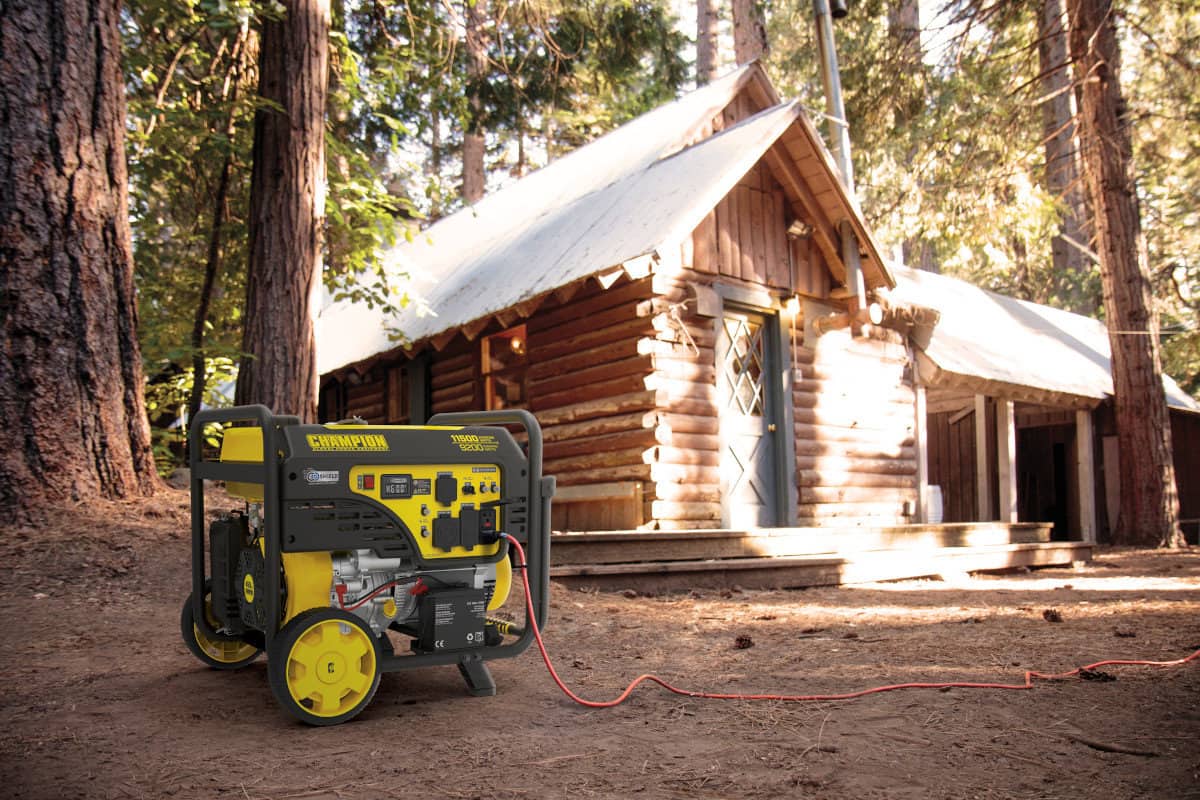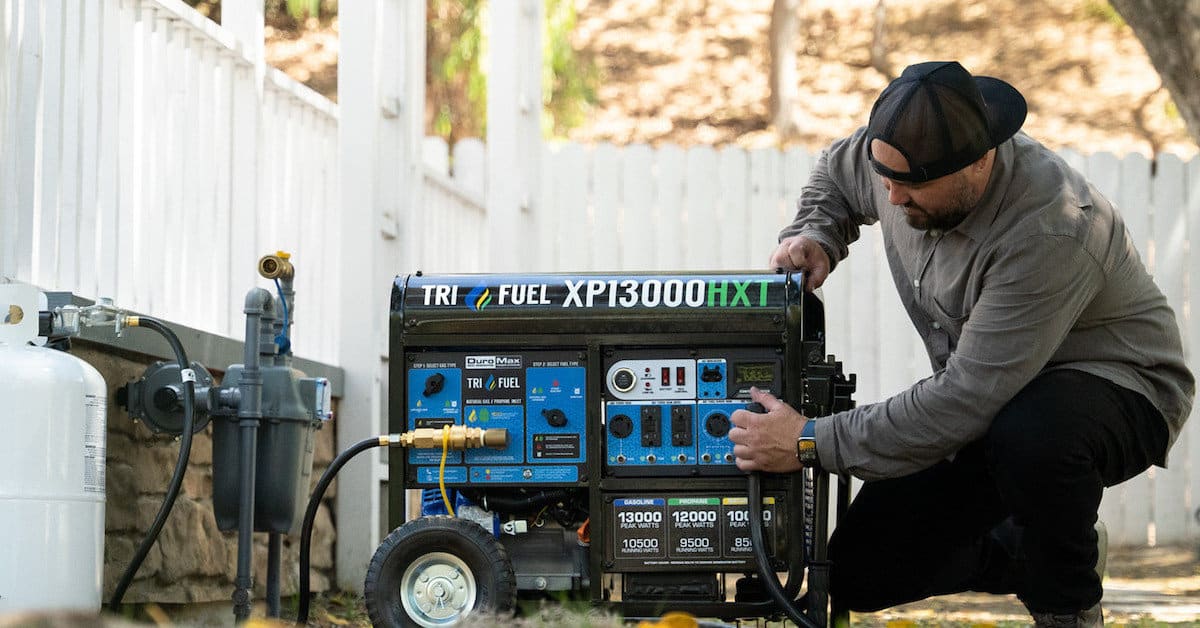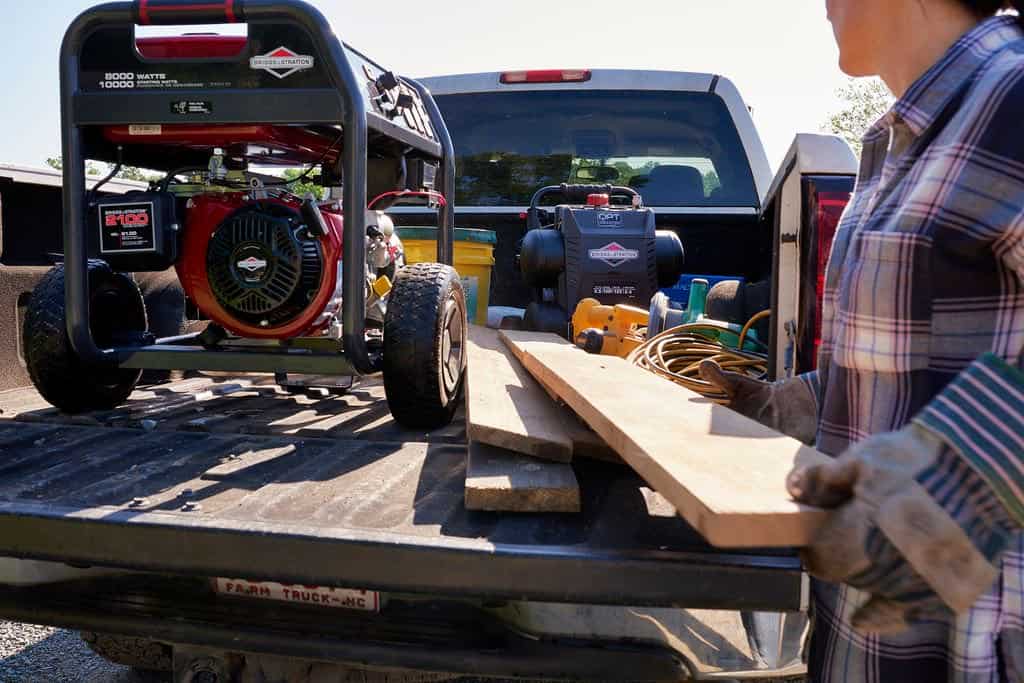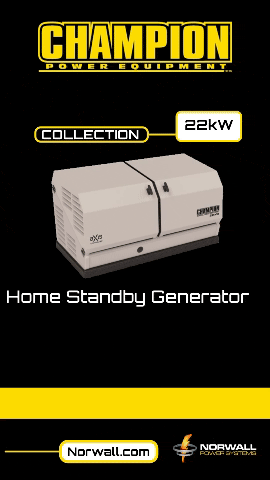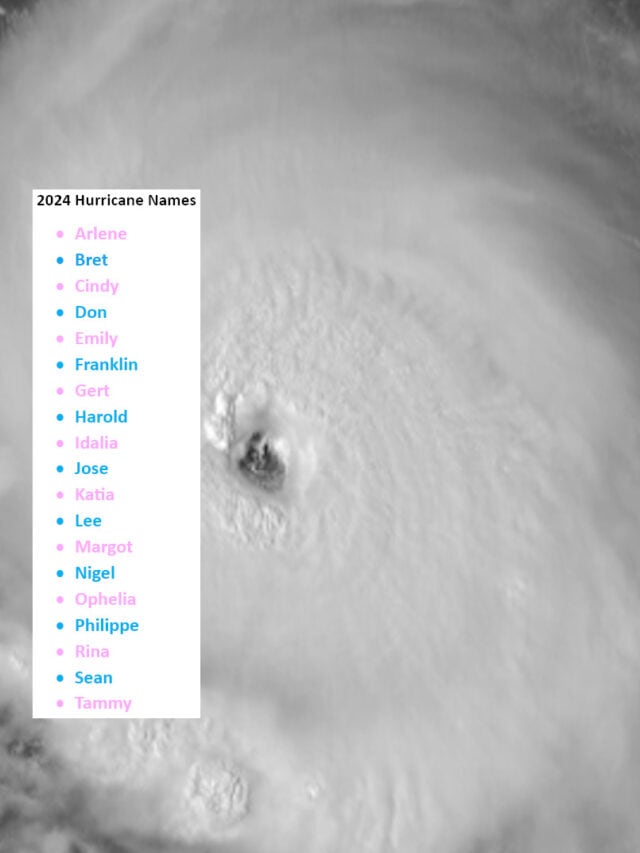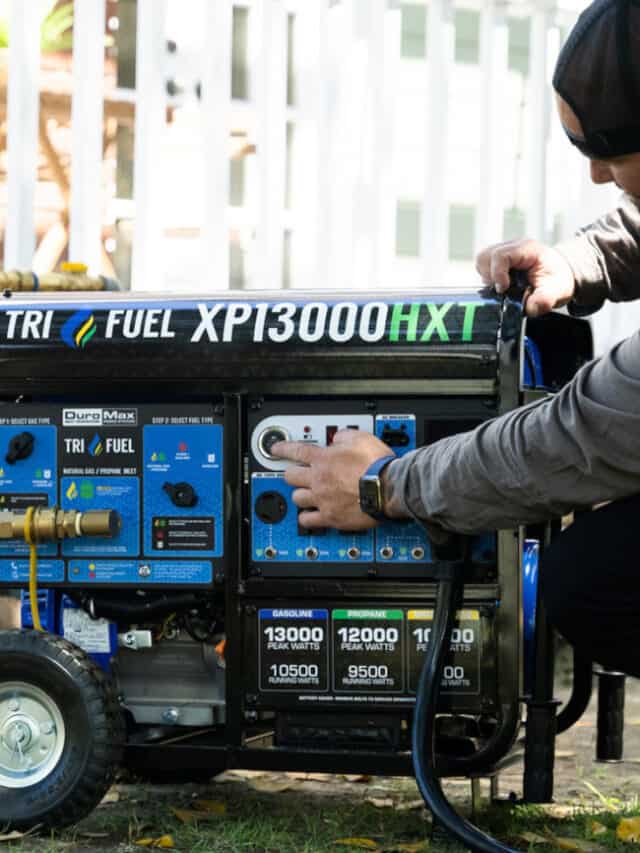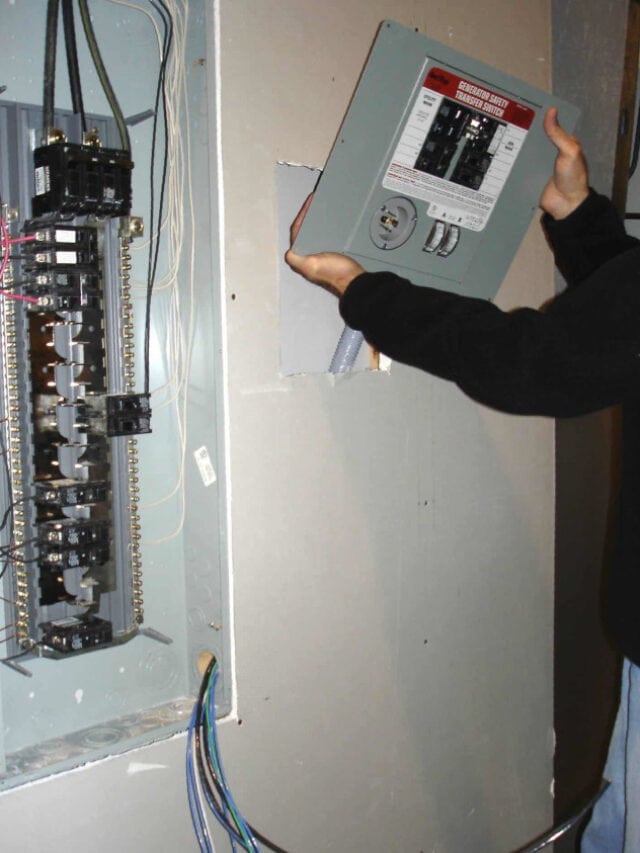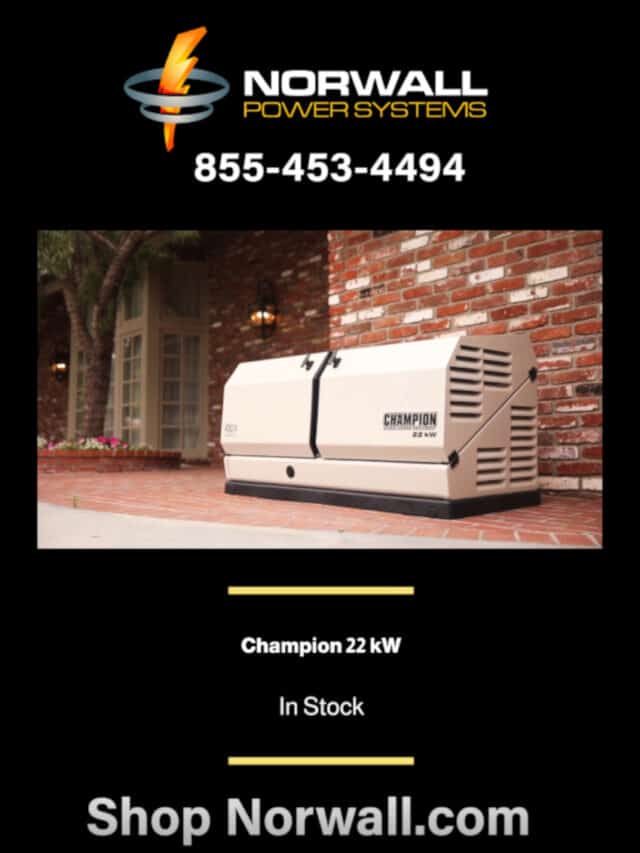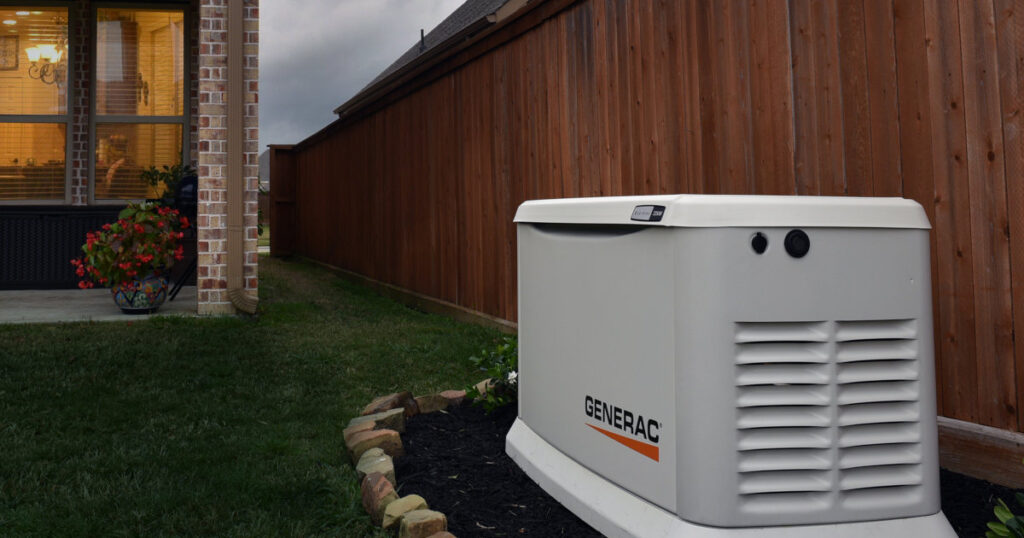Updated September 13, 2022 in Generator Tips & Portable Generators
Tags: Portable Generators | Power Outage | Safety
by MJ Logan
Portable Generators—Power Where You Need It
A portable generator might be a convenience, a necessity, or a lifesaver, depending on the situation. Very often, they serve multiple purposes on job sites, camping trips, and around the home.
Their portability brings electrical power wherever it is needed and isn’t easily available. They show up at tailgate parties, farmer’s markets, community events, and picnics.
With so many features to choose from, how do you pick the right model? It depends on the the main use and other possible uses you might find for it.
Carbon Monoxide Detection and Shutdown

Take it outside at least 10-20 feet from the home with the exhaust pointing away from windows, doors, vents, or other openings.
Manuals have warnings. There are labels on the generator. All of them warn you to not to run a generator indoors or next to a house. Certainly not in any enclosed area—not even with all the windows open or the garage door open. And yet, people do it anyway and if they are lucky, end up in the Emergency Department with CO poisoning and not in the hospital basement morgue.
Generator companies are adding carbon monoxide detection and shutdown to their generators.
There are social media campaigns. Websites dedicated to educating consumers. FEMA, The Red Cross, and Ready.gov all have pages dedicated to generator safety. Here at Norwall, we’ve been proactive for years by warning people to never run a generator indoors along with other safety information.
Portable Generator Safety Rules to Live By
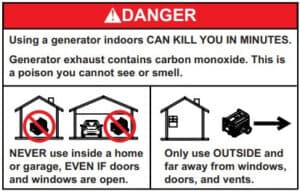 In spite of the efforts, people continue to run generators indoors or too close to their home. As a result, generator companies began adding carbon monoxide detection and shutdown to their generators. Most companies are in the process of phasing out older models without the protection.
In spite of the efforts, people continue to run generators indoors or too close to their home. As a result, generator companies began adding carbon monoxide detection and shutdown to their generators. Most companies are in the process of phasing out older models without the protection.
The CO Detection features do not make it safe to run a generator indoors. They add another measure of safety that helps protect consumers from Carbon Monoxide poisoning.
Never Run a Generator or Any Internal Combustion Engine Indoors.
120 vs 240 Volts
Some small generators provide just 120 volts. When power needs are light and you won’t run any 240- volt appliances or tools, one or more 120 volt outlets work just fine. As the power requirement in watts increases however, 120-volt units become increasingly inefficient. Most RV electrical systems are 120-volts while most homes use a combination of 120 and 240 volts.
Larger Generators for Big Jobs or Home Backup generate 240 volts and supply it the same way as the power company through a 120/240-Volt Outlet rated for 30 Amps or 50 Amps. For higher voltage applications such as supplying certain tools or connecting to the house during an outage, the 240-volt option is important.
If you’re looking at RV, Camping, and Other 120-Volt Applications for home use, you’re probably fine with a 120-volt generator. Otherwise, choose a generator with 120/240-Volt outlets.
Low Oil Shutdown
Generators often run for hours without a rest. As they use oil, the level can drop to a point where it doesn’t properly lubricate the engine anymore and damage can occur. A low-oil sensor can shut off the engine and prevent costly repairs or even the need to replace the generator.
Even Better: A fully pressurized lubrication system similar to that found in a car ensures all the moving parts receive a continuous bath of lubricating oil.
A low oil sensor is especially important when the generator will run unattended for long periods. Always check the oil during refueling and top it off to maintain the correct level.
Electric Start
If you’ve ever pulled starter ropes for a large engine, you know what a chore that can turn into. Electric Start Generators eliminate this problem. The speed and duration make it very easy to start the engine.
Since your generator will probably spend a good portion of its life in storage, keep the battery charged and ready. A charger designed to maintain a battery without overcharging will ensure it stays ready for use.
Although you won’t find a pull cord on most larger generators, such as a standby unit or trailer model, having one on your home portable is still a good idea. If the battery dies at the wrong time, you can still start the generator if necessary.
Remote Electric Start
Start the generator at a distance—from indoors if that is most convenient. On a cold, rainy morning, remote electric start becomes very convenient when you need your morning coffee and don’t want to make the trip outside to start the generator.
Most Remote Start Generators use a fob similar to your vehicles key fob or remote start fob. Each fob pairs with a specific generator. If you’re running two in parallel, starting requires using both. Generators with remote start often use push button starting.
Push button start requires that you only push the start button. The generator will turn the starter motor until it starts or times out. Conventional electric start requires you to hold the starter button until the engine starts.
Using remote start requires the on/off switch in the “On” position. Although it doesn’t use much power, eventually it will drain the battery. Keep the battery charged and run the generator daily to prevent a dead battery and the required recoil pull start.
Receptacles
Match the number and type of receptacles to the intended to use. On small units, two or three, 120-volt receptacles is usual. As the power capacity increases, expect to find a wider variety of types. A feature like GFCI receptacles is important when you’re running hand-held appliances on extension cords in a damp location.
Look for one or two locking receptacles with a high-current capacity. A 30-amp or 50-amp receptacle is useful for connection to a Manual Transfer Switch for Home Backup and can provide power to hard-wired appliances such as a furnace, well pump, or even an air conditioner. If your intended use is a portable RV Generator, look for an RV outlet.
Fuel Types and Use
The most common fuels for portable generators are Gasoline, Propane, Natural Gas, and Diesel.
With the exception of Diesel, most portable generators run a gasoline. Dual Fuel Generators run on gasoline and propane (LP). Tri-Fuel Generators add natural gas as the third fuel. Each fuel type has advantages and disadvantages.
Gasoline is common and provides more power than either LP Propane or Natural Gas, but less power than diesel. Larger generators will empty a small propane tank in a hurry.
Storing gasoline can turn into an issue. Many local communities restrict storage of gasoline and a common limit is 25 gallons. Gasoline also has a limited storage life and keeping large fuel supplies fresh is a chore.
Keep gasoline supplies fresh with a fuel stabilizer, and only use stabilized fuel in your generator. It prevents stale gasoline from gumming up the fuel system and you can store the fuel for a year or more. Just follow the manufacturers recommendation.
Some generator manufacturers recommend the use of pure gasoline without ethanol additives. It only costs more per gallon, but using it may mean a longer generator life, better fuel economy, and smoother operation.

